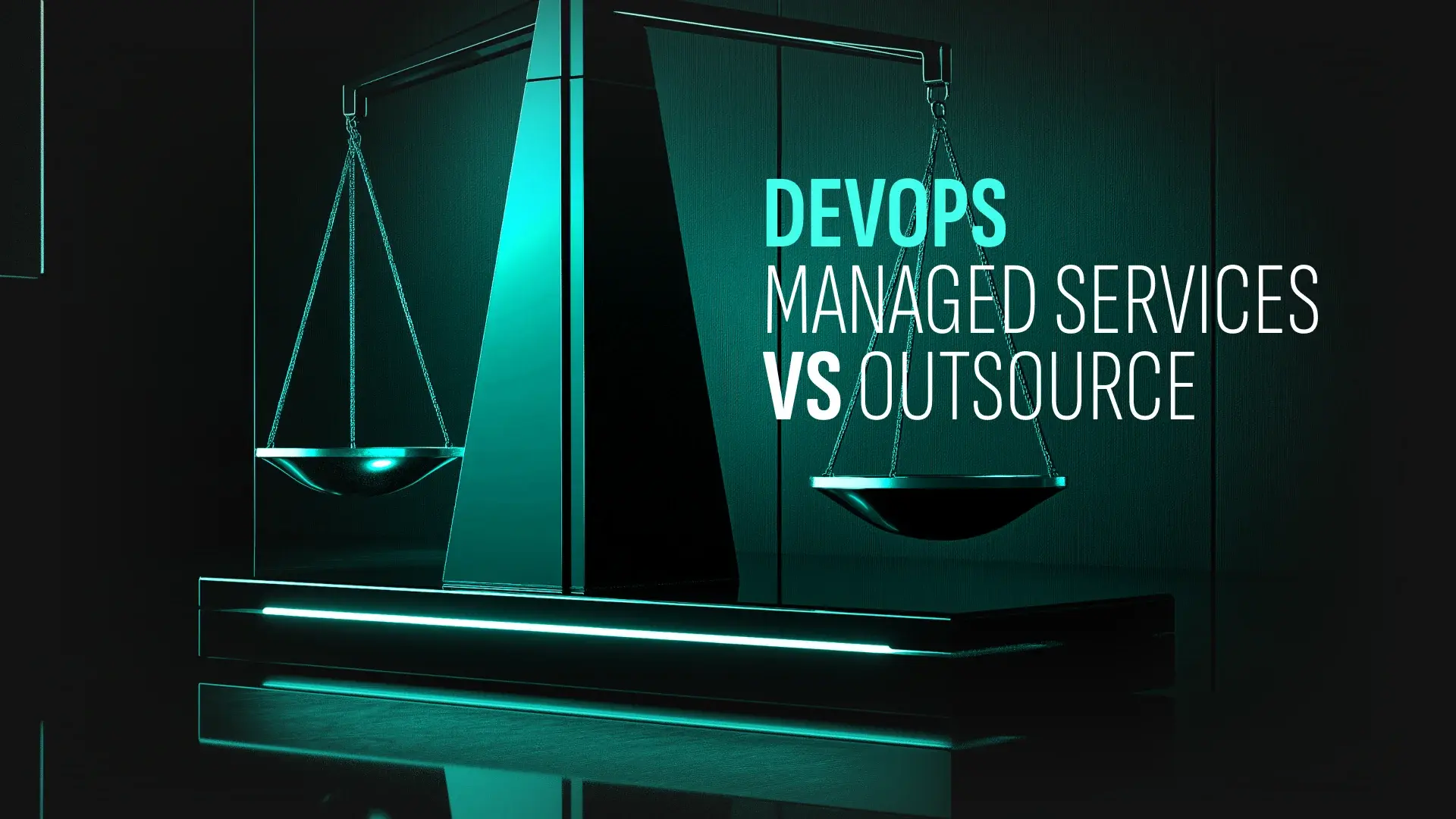With the growing adoption of technology within enterprises, how these businesses implement DevOps is very crucial for their agility, system resilience, and innovation. The two models that dominate the market are DevOps Managed Services and Outsourcing. Although both are designed to enhance the development and operational efficiency of an organization, they differ fundamentally in their implementation and alignment with the business. For decision-makers seeking to optimize returns while mitigating risks and leveraging advanced technologies to capitalize on business opportunities, these differences are crucial.
What Are DevOps Managed Services?
DevOps Managed Services represent a comprehensive, ongoing partnership in which a third-party provider assumes end-to-end responsibility for your DevOps environment. This includes managing CI/CD pipelines, infrastructure as code, automated testing, monitoring, incident response, security, and compliance. The managed services provider acts as an extension of your team, proactively optimizing and scaling your DevOps processes as your business evolves.
Key Benefits:
- Turnkey Automation: Rapid deployment, automated scaling, and continuous monitoring minimize manual intervention and reduce human error.
- Predictable Costs: Fixed monthly fees and service-level agreements (SLAs) ensure budget certainty.
- Enhanced Security & Compliance: Providers deliver built-in security controls and compliance frameworks.
- Focus on Innovation: Internal teams are freed from operational burdens, allowing them to concentrate on product development and business strategy.
What Is DevOps Outsourcing?
In the realm of DevOps outsourcing, you have the freedom to contract external specialists to attend to certain tasks, projects, or even functions. Engaging an outsourced expert could come in the form of setting a CI/CD pipeline or migrating to a cloud, but may also entail ongoing support or specialized services provided for a specific time frame. Primarily, the relationship is more tunned to the service contract, where the provider is bound to meeting set goals devoid of deeper organizational integration.
Key Benefits:
- On-Demand Expertise: Access specialized skills and industry best practices from teams with diverse experience.
- Scalability: Quickly adjust resources up or down to meet project demands without needing long-term commitments.
- Cost Efficiency: Only pay for the services you use, eliminating costs related to full-time employees and infrastructure.
- Faster Time-to-Value: Quickly onboard vetted professionals for rapid implementation or troubleshooting.
Side-by-Side Comparison
| Aspect | DevOps Managed Services | DevOps Outsourcing |
|---|---|---|
| Engagement Model | Long-term, integrated partnership | Project-based or ongoing, transactional |
| Responsibility | Provider manages entire DevOps lifecycle | Provider handles specific tasks/projects |
| Cost Structure | Predictable, fixed monthly fees | Variable, based on scope and duration |
| Scalability | Scales with business growth, proactive | Scales per project demand, reactive |
| Control | Provider-driven, less day-to-day client control | Client retains more control, flexible |
| Best for | Organizations seeking stability and deep integration | Organizations needing agility, expertise, or cost savings |
Which Model Fits Your Business?
DevOps Managed Services Are Ideal For:
- Established Enterprises: Mature organizations with complex, regulated environments require stability, compliance, and the minimization of operational risk.
- Organizations Seeking Focus: Companies looking to offload DevOps management, enabling internal teams to concentrate on innovation and core business functions.
- Businesses Requiring Predictability: Companies that prioritize fixed costs, clear SLAs, and long-term partnerships.
- Rapidly Scaling Companies: Businesses where seamless, automated scaling and continuous optimization are critical for sustained growth.
DevOps Outsourcing Is Best For:
- Startups and SMBs: Companies with limited budgets or fluctuating workloads need access to specialized expertise without long-term commitments.
- Project-Based Needs: Organizations facing one-off migrations, tool integrations, or urgent troubleshooting scenarios.
- Organizations Testing DevOps: Businesses exploring DevOps practices before committing to a managed service model.
- Companies Demanding Flexibility: Businesses that require control over specific processes or need to adjust resources as necessary quickly.
Strategic Takeaway for C-Level Leaders
The difference between choosing DevOps Managed Services and DevOps Outsourcing is not just technical — it's strategic. Managed Services are ideal for organizations that prioritize continuity and compliance due to their deep integration, operational stability, and hands-off model. As it is, outsourcing brings rapid access to expertise, cost savings, and flexibility, making this option ideal for project-driven environments or businesses undergoing transitional phases.
Each option presents clear advantages and disadvantages, which largely depend on your organization's size, growth stage, desire for control versus convenience, and regulatory environment. Ensure that you analyze business objectives and resource limitations in conjunction with the long-term digital strategy to identify which will best enable transformation while maintaining a competitive edge.




.webp?width=624&height=427&name=DevOps%20-%20Summing%20up%20the%20results%20(1).webp)
